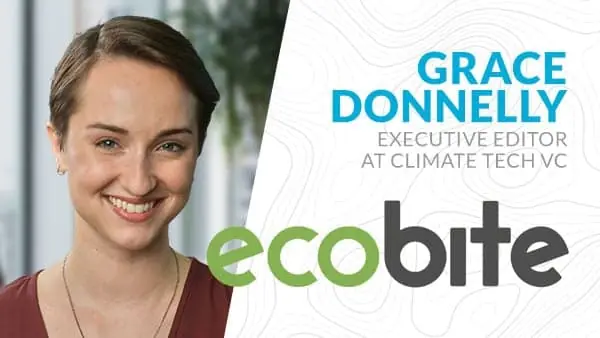As Executive Editor of Climate Tech VC (CTVC), Grace Donnelly tracks and reports on venture capital investment into climate technology companies. “Knowing where money is coming from is a great way that journalism helps track power dynamics in our world.” It’s also a good indicator of what solutions the market believes will work.
“Climate tech” includes companies working on energy, on carbon management, land use, built environments, food and agriculture, and all kinds of different industries and sectors that need to reduce emissions in order to meet our climate goals, Donnelly explained. A business journalist by trade, Donnelly joined CTVC in February 2023.
CTVC categorizes climate tech as less of an industry and more of a theme, she says, and then breaks it into seven sub-sectors: energy; food and land use; transportation; built environment; carbon; climate management; and industrial. “A lot of innovation happens through start-ups,” Donnelly said, and the development of technology to address emissions and other climate issues is no exception. “At the early stages, many of these companies get funding from government grants and programs like that, but as they start to grow and scale, they need capital, and that typically comes from venture firms.”
“The data on how much funding is going into different sectors and different areas of climate tech really shows where the market thinks solutions are going, and which types of technologies will work,” said Donnelly. “Taking a look at the trends within venture capital and looking at where those investors are placing their bets, gives an indicator of which parts of this climate tech ecosystem are getting resources, are getting support, are kind of expected to grow. And I think it also importantly points out areas where the venture model might not be a good fit for scaling something that we really need.”
At the end of June, CTVC published a report on venture capital activity and climate technology for the first six months of 2023. Despite speculation that climate technology might be relatively insulated from macroeconomic trends and overall investment decline, the report did find that investments dipped in the first half of the year compared to the six months prior and the first half of 2022.



